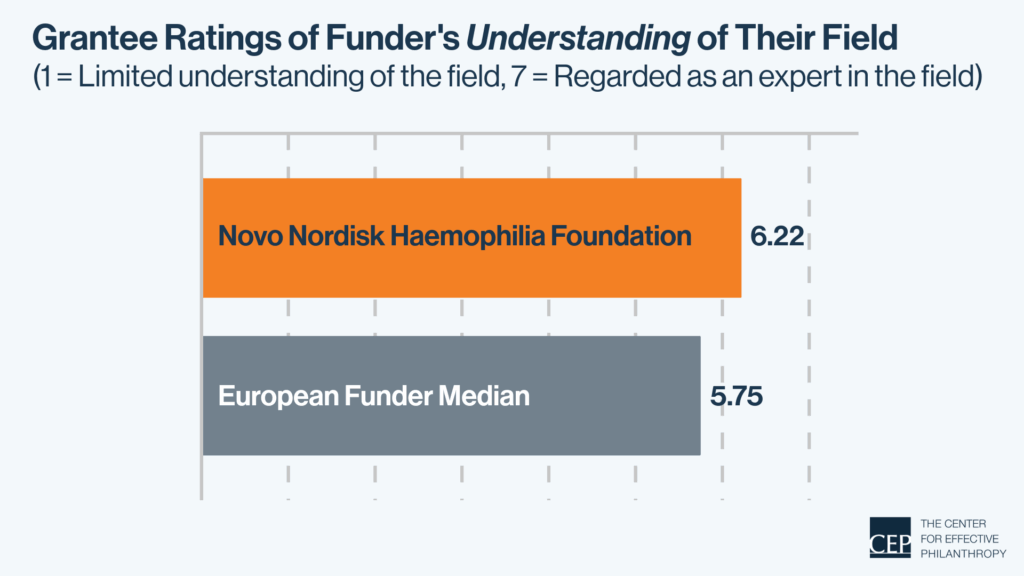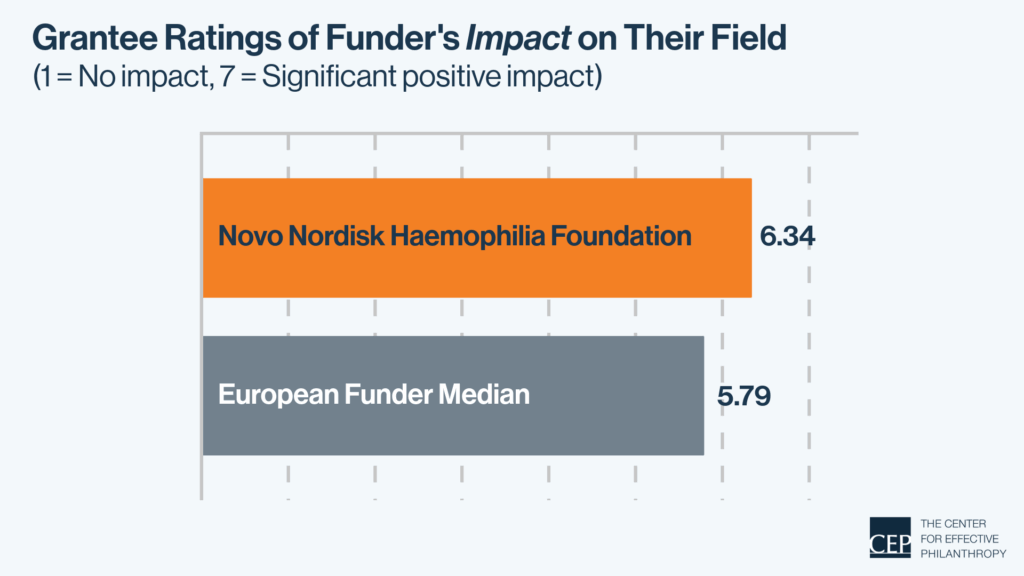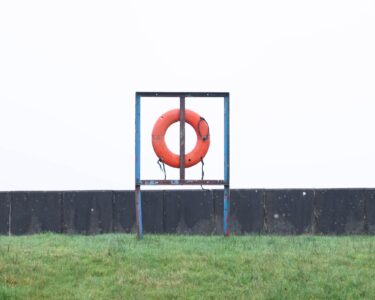“Listen and be out there in the in the field, whatever your field is.” -Denise Brændgård, General Manager, Novo Nordisk Haemophilia Foundation
This post is the last of a three-part blog series that builds on the findings of a recent CEP publication, Partnering for Progress: Grantee Recommendations for Europe-Based Funders. The report examines grantees’ perceptions and recommendations their funders who are based in Europe and finds that three main issues are top of mind for them:
- They are asking for their funders to invest in building deeper relationships with them
- They report that in many cases application and reporting processes by their European funders are burdensome and they call for further streamlining and simplification
- They praise the benefits of flexible and unrestricted funding, and useful assistance beyond the grant from funders and are asking for more support of this kind to be provided.
In this blog series, we are sharing three funder profiles who are amongst the higher rated Europe-based funders in CEP’s Grantee Perception Report dataset and who have been implementing approaches and practices that address directly some or all of the three types of requests made by grantees.
Novo Nordisk Haemophilia Foundation (NNHF) has commissioned CEP’s Grantee Perception Report (GPR) twice in the last three years. NNHF’s grantees provide positive feedback about the Foundation’s practices, particularly about the helpfulness of its grantmaking processes and the ways it builds intentional relationships based on deep understanding of grantees’ work.
Highlighted Practice 1: Dialogue and Co-creation in the Application Phase
In their GPR survey results, NNHF receives outstanding feedback for the ways in which its application process is a helpful opportunity to strengthen the efforts funded by the grant. Grantees’ ratings place the Foundation at the 97th percentile of the more than 350 funders in the GPR dataset, and NNHF’s ratings place it at the top of all European funders that have used the GPR.
NNHF attributes this strength to two key practices:
- Having a two-step approach in the application process, ensuring that there is an opportunity for real dialogue between NNHF and a prospective grantee before that grantee develops a full proposal
- Approaching the application as a flexible co-creation process that seeks to build understanding of a grantee’s work and context
Grantees also pointed to visits by Foundation staff to the locations where the projects are carried out as contributing greatly to this process, both at the development phase, as well as during implementation.
Grantee partner Luz Villalaz of the Panama Foundation for Haemophilia notes: “…they come and visit the activities several times and participate with us in some of the activities we’re doing, seeing how our process is. That’s very, very important…. And likewise, throughout the duration of the process.”
Denise Brændgård, general manager of NNHF, describes the purpose of these visits as building understanding of “…the situation, the context of that applicant in that country, and then also for us to, in that application process, connect them with people and organizations that can help them based on the issues that have been defined and what they want to achieve within the project.”
Highlighted Practice 2: Adding New Perspectives to Build Understanding and Impact
NNHF also stands out for the strength of grantees’ perceptions that the Foundation understands the fields in which they work and that the Foundation makes an impact on their fields.


NNHF sees a clear link between these positive ratings by its grantees and the Foundation’s efforts to diversify the profiles of its staff and ensure they were continually trying to get closer to the realities of their partners. In Denise’s words:
“It’s essential to have firsthand representation from low- and middle-income countries when decisions are being made about issues that directly affect them. Over time, we’ve brought in team and board members from diverse backgrounds, and this shift has truly transformed our discussions. Now, for instance, we have someone in the board from an African country who knows the doctors and patient organizations across the continent and can confidently say, ‘That isn’t practical,’ or ‘This is crucial in that country’s context.’ The same goes for Latin America and Asia—having regional voices at the table has made all the difference.”
Grantees also celebrate the closeness they feel to the NNHF. As Aimee Olivat Rakoto Alson, a grantee partner from Madagascar puts it: “[We have a] completely friendly and truly fraternal relationship and where [we feel] there is no distance.”
About Novo Nordisk Haemophilia Foundation
NNHF funds projects to build capacity for diagnosis and care, encouraging its partners to join forces for sustainable impact and systemic change. Together, they strive to empower people with haemophilia and allied disorders to raise awareness, advocate with a united voice and live full lives.
Headquarters: Zurich, Switzerland
Geographic focus: Global
Natalia Kiryttopoulou is the lead for Global Assessment and Advisory Services at CEP.
Editor’s Note: CEP publishes a range of perspectives. The views expressed here are those of the authors, not necessarily those of CEP.
👇Follow more 👇
👉 bdphone.com
👉 ultractivation.com
👉 trainingreferral.com
👉 shaplafood.com
👉 bangladeshi.help
👉 www.forexdhaka.com
👉 uncommunication.com
👉 ultra-sim.com
👉 forexdhaka.com
👉 ultrafxfund.com
👉 bdphoneonline.com
👉 dailyadvice.us




